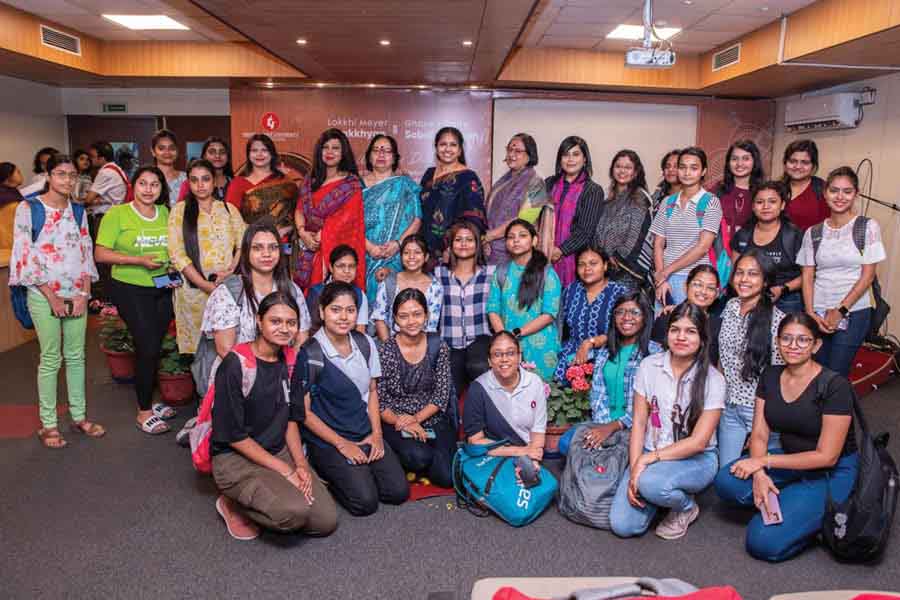Women depicted in roles traditionally associated with men and men performing household duties are some of the changes being incorporated in Delhi government school textbooks after a gender audit flagged biases in them.
In a significant move towards promoting gender equality in education, Delhi's State Council of Educational Research and Training (SCERT) conducted a comprehensive gender audit of 53 textbooks and curricula.
Officials said the audit was aimed at identifying and eliminating gender biases and stereotypes perpetuated in academic materials.
The gender audit committee, comprising experts from the National Council of Educational Research and Training (NCERT), the Delhi University, central institutes of education, and NGOs analysed the textbooks and curricula, identifying gaps in contextual understanding from a gender perspective, a SCERT official explained.
The committee report observed a gender gap in teaching material and flagged the male-dominated content, illustrations, and language and the depiction of women in submissive roles.
It also highlighted the lack of representation of the transgender community, and gender-insensitive language and exercises, according to the officials.
The committee made recommendations for inclusive changes, including the adoption of gender-neutral language and illustrations, balanced representation of male and female contributors, avoidance of submissive female roles and stereotypes.
It also suggested inclusion of transgender persons and their contribution, highlighting achievements of all genders in unconventional fields, encouraging critical thinking and discussion on gender issues.
According to the report, in subjects such as home science, men and women would be shown in professional roles, breaking gender stereotype.
Explaining the changes, another SCERT official said the gender audit identified problematic projection of women in one chapter.
The chapter depicted women washing clothes and fetching water.
"It has been ensured through the new content referring to men also being involved in grocery shopping, which was earlier shown as a female-dominated task," she added.
The second official also highlighted that concepts of substance abuse and good touch and bad touch were included after the gender audit for the awareness of students.
"The new content is being introduced. The term transgender has been incorporated," said the official.
In mathematics, the committee has suggested including gender-neutral examples at certain places and also pushed for increased female representation in explaining examples.
The committee also highlighted the positive examples such as depictions of boys and girls riding a bus, eating and playing together.
The SCERT officials said the audit emphasised the critical role of textbooks in shaping students' values, attitudes and beliefs.
By promoting gender sensitivity, SCERT aims to create a more inclusive learning environment, encouraging students to challenge gender stereotypes and biases, the first official said.
The report stated that the initiative aligned with the new National Education Policy's emphasis on gender equality and inclusive education, marking a significant step towards creating a more just and equitable society.
The second official told PTI that the current pattern of presenting male personalities in books was being changed by introducing female leads.
For instance, in the entrepreneurship and Deshbhakti curriculum, which previously featured mostly men, the format is being revised to include female leads, she said.
Male leads are also being added to subjects such as home science, where female representation is more prevalent. These changes aim to promote not only gender equality but also the overall development of students by engaging them in diverse activities and teaching them new skills, she added.
The officials emphasised that textbooks alone could not change students' mindset as they were also influenced by their home environment.
"Therefore, there is a need for gender sensitisation among school students through activities. For example, tasks such as decoration, typically assigned to female students, will be given to male students to promote equality and challenge stereotypes," they added.
Except for the headline, this story has not been edited by The Telegraph Online staff and has been published from a syndicated feed.












